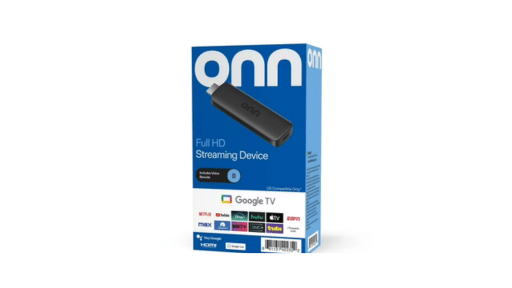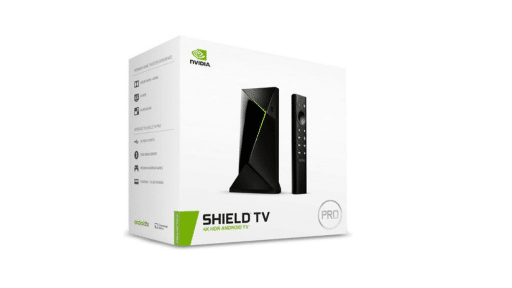
When Google Stadia made its debut in November 2019, it aimed to redefine the gaming landscape by offering seamless game streaming devoid of traditional hardware constraints. However, its journey was fraught with challenges, culminating in its official closure on January 18, 2023.
Among the myriad of factors contributing to Stadia’s downfall, poor marketing, poor coverage, and technical intricacies emerged as significant hurdles.
On Reddit last week, a self-identified Stadia team-member did an AMA with the community that has given us all a bit of a retrospective. The proof that this is a bonafide insider is provided by a posted picture of a rare set of insider-only Stadia periphanalia – a clear controller and LEGO mini-fig.
A number of tidbits of insight were dropped in the thread. One thing that is striking is how passionate the team behind Stadia apparently was.
We never lost faith! Even when things clearly were not moving in the right direction, we trusted so much the technology behind it that we believed Google would still give us a shot.
I want to highlight that many of the discussions are pinpointed on what went wrong. I wanted to share that I had a great experience on Stadia and am very fortunate to had been part of it. Everyone in the team had the understanding of how groundbreaking the tech was. We had many successes, but unfortunately they were not enough to keep Stadia alive.
…
I can also attest that we had a strong and passionate team, but Stadia was a startup inside a giant corporation. Google was too averse of taking risks, and bureaucracy and old google practices really slowed us down.

Poor Coverage and Marketing missteps exacerbated Stadia’s woes
The release date was exciting, but I think the biggest mistake was not calling it a Beta product and requiring a Controller and Chromecast to play. Our user numbers were way below expectations, and the amount of dumb post from the media outlets of people clearly misunderstanding Stadia and playing it on bad networks didn’t help.
He follows with:
We planned and prepared the media outlets with information and instructions on how to play it the way before sharing the codes that would allow them to try it. I believe many of them purposefully tried in bad networks just to have a piece of news that would generate more views.
Remember that GIF of that guy pressing space bar and the character on the screen jumping like a couple of seconds later? That was plain stupid and in bad faith in my opinion. They were told to use a Chromecast and controller, but they logged in in their shared Wi-Fi on their company.
The marketing team should have enforced more the conditions in which the media companies would be allowed to test the product.
After some initial bad coverage and a poor reception, why didn’t Stadia then push harder on marketing to fix the narrative and improve awareness?
Stadia had an understanding that there were several things to fix before going big on marketing. But I agree with you, awareness was a huge problem, and once the user was aware of it they didn’t understand the product, which only made things worse. Many things could have been better if marketing did at least an OK job.

About Game Porting and Connecting to other Google Products
Why didn’t Stadia use WINE to make porting to Linux easier?
I don’t know about Wine specifically, but right in the beginning of deciding the strategy, the team considered porting vs. no porting.
In order to take full advantage of Stadia tech and with a focus on the user’s gameplay experience and overall gameplay quality, the ultimate decision was to create a dedicated platform which would require the porting of the games. PS: in many cases, devs were being compensated for the porting
About connecting with Google Chromecast and Chromebook releases:
🤦🏻♂️ I almost died inside when Google released the new Chromecast and that didn’t support Stadia.
Each department inside Google functions as a company. Google Play alone is much bigger than many companies out there, for example. When chrome team considered Stadia as a partner, they are thinking what’s better for them, not what’s better for Stadia or Google.

What could have saved Stadia?
The insider thinks the following could have made a difference.
- Businesses teams were built too late in the process, many folks were still figuring out internal tools and processes
- Should be a Beta product open to everyone. We had so much spare capacity since day 1!
- Marketing was the weakest point, not even people inside google understood or knew about stadia
- Biggest problem on the business model: is stadia a Subscription or a Store? We decided to be both, which yielded a very weak offering. Like you couldn’t buy a game that you’ve claimed? Preventing users from buy is the worst.
- Another failure from marketing was in not preparing our users for the product. Many of them thought they were repurchasing the games. That doesn’t make any sense.
- Took too long to get to an affordable pricing for purchases. Execs had in mind that users would be willing to pay more for the games because they didn’t spend money on a console. Wrong!! Users didn’t connect these two events.
- The funniest in my opinion: way in the start Google conducted a survey that indicated that ~90%+ of the transactions happened on mobile, that’s why they’ve decided to build and invest as a focus in the store on mobile first (and not on Chromecast for example). What they forgot was to filter that by gaming users, which majority purchase in the same device they play.
- Finally. Google has this idea of building every tool needed in order to not be dependent on a partner, our internal tools for devs were archaic compared to competitors, and building it internally takes so long.
As always, remember to follow us on our social media platforms (e.g., Threads, X (Twitter), Bluesky, YouTube, and Facebook) to stay up-to-date with the latest news. This website contains affiliate links. We may receive a commission when you click on these links and make a purchase, at no extra cost to you. We are an independent site, and the opinions expressed here are our own.











Wow. I think most of this we had guessed as a community at the time. It really doesn’t reflect well on Google though. As a consequence, I wonder how many Stadia users now think twice about investing in any services from Google? I know I do. However, at the time they were the only serious cloud gaming player in town. If they had launched into an existing market with proven guidelines for what works and what doesn’t, maybe things would have been different.
Still – it was great while it lasted!